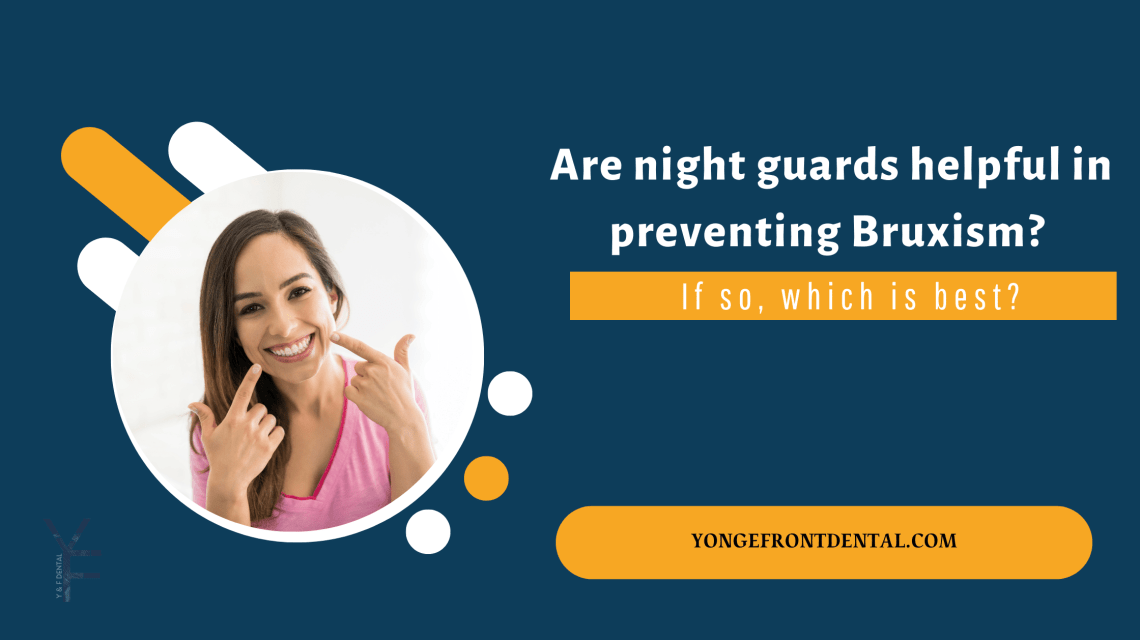Bruxism, or teeth grinding, is a condition that affects millions of people—often without them realizing it. Frequently occurring during sleep, this involuntary habit can lead to a wide range of dental and health issues, from tooth damage to chronic jaw pain. One commonly recommended solution is the use of a night guard. But the question remains: Are night guards truly helpful in preventing bruxism? And if so, which type is the best choice?
Let’s take a closer look at how night guards work, what options are available, and when it’s time to see a dentist.
What Is Bruxism?
Bruxism refers to the repetitive grinding or clenching of teeth, usually while sleeping. While occasional teeth grinding may not cause harm, chronic bruxism can lead to severe oral health problems if left untreated.
Causes of Bruxism
Bruxism can be triggered by a range of physical, psychological, and lifestyle factors. Some of the most common include:
- Stress and anxiety:Emotional tension is a leading cause, especially in adults.
- Misaligned teeth or bite issues:The way teeth come together can contribute to grinding.
- Sleep disorders:Conditions like sleep apnea are frequently linked to bruxism.
- Caffeine and alcohol consumption:These stimulants may increase muscle activity during sleep.
- Medications:Certain antidepressants and neurological drugs can be associated with teeth grinding.
Symptoms to Watch For
Many people aren’t aware they grind their teeth until symptoms become noticeable. These may include:
- A sore or tired jaw upon waking
- Frequent headaches, especially around the temples
- Worn-down, chipped, or flattened teeth
- Increased tooth sensitivity
- Clicking or popping sounds in the jaw
- Sleep disturbances or complaints from a partner about grinding noises

Are Night Guards Helpful in Preventing Bruxism?
Night guards, also known as dental splints or occlusal guards, are specially designed appliances worn during sleep to prevent the upper and lower teeth from making direct contact. While they don’t address the underlying causes of bruxism, they can significantly reduce the damage and discomfort associated with it.
How Night Guards Work
A night guard acts as a cushion or barrier between the upper and lower teeth. This separation helps:
- Reduce the wear and tear on tooth enamel
- Alleviate stress on the jaw muscles and joints
- Prevent dental restorations, like crowns or fillings, from being damaged
- Decrease morning headaches and facial soreness
Night guards don’t stop the grinding behavior itself but can significantly lessen its harmful effects over time. Many patients also report better sleep quality and fewer dental emergencies as a result.
What Do Studies Show?
Clinical research supports the use of night guards as an effective method for managing bruxism symptoms. A study published in the Journal of Oral Rehabilitationfound that patients who wore custom-fitted guards reported a noticeable reduction in jaw discomfort and tooth wear compared to those who didn’t use any appliance.
Another review published in Sleep Medicine Reviewsconcluded that occlusal splints are a well-tolerated and non-invasive option that can offer significant relief, especially for sleep-related bruxism.
Types of Night Guards: Which Is Best?
Night guards come in several forms, each with its own pros and cons. Choosing the right one depends on the severity of the condition, personal comfort, and professional guidance.
1. Over-the-Counter (OTC) Night Guards
These are generic, one-size-fits-all guards sold at pharmacies or online.
Pros:
- Affordable and accessible
- Quick to purchase
Cons:
- Often bulky and uncomfortable
- Poor fit can lead to uneven pressure and jaw discomfort
- May not last long due to lower-quality materials
2. Boil-and-Bite Night Guards
These guards are slightly more customizable. They’re made from a thermoplastic material that softens in hot water, allowing the user to bite into them for a semi-custom fit.
Pros:
- Better fit than standard OTC guards
- Moderately priced
Cons:
- Still not as precise as a custom-fitted guard
- May degrade quickly with heavy grinding

3. Custom-Fitted Night Guards (Provided by Dentists)
Custom guards are crafted in a dental lab using impressions of your teeth, ensuring a personalized fit.
Pros:
- Most comfortable and effective fit
- Tailored to specific grinding patterns
- Durable and long-lasting
- Reduced risk of jaw misalignment
Cons:
- Higher initial cost compared to store-bought options
At Yonge and Front Dental in Toronto, we provide custom-fitted night guards designed for both comfort and durability. Our team works closely with patients to identify their symptoms, take accurate impressions, and ensure a seamless fit.
Why Choose a Custom Night Guard?
Investing in a professionally made night guard can make a real difference for patients dealing with persistent grinding or clenching. Here’s why many dentists recommend this option:
Long-Term Protection
A well-fitted night guard helps prevent further damage to your teeth and dental work. It also safeguards against future issues such as tooth fractures, gum recession, or cracked fillings.
Improved Sleep Quality
Grinding can disrupt sleep and cause frequent waking during the night. A night guard can reduce grinding intensity, helping both you and your partner sleep better.
Fewer Dental Visits for Repairs
Patients with untreated bruxism often require repeat dental work to repair chips, worn-down teeth, or broken restorations. A night guard helps preserve existing dental work and may reduce emergency visits.
When Should You See a Dentist About Bruxism?
It’s easy to dismiss mild symptoms of teeth grinding, especially if they seem to come and go. However, early intervention can prevent long-term complications. Consider booking a dental appointment if you:
- Wake up with jaw soreness, headaches, or facial pain
- Notice visible wear on your teeth
- Have trouble chewing or opening your mouth fully
- Hear clicking or popping sounds in your jaw
- Are told by your partner that you grind or clench during sleep
At Yonge and Front Dental, we can assess your bite, review symptoms, and determine whether a night guard is a suitable solution.

How to Care for Your Night Guard
Maintaining your night guard properly helps it last longer and keeps it hygienic.
Here are a few simple care tips:
- Rinse the night guard with cold water before and after each use.
- Use a toothbrush and mild soap to clean it—avoid toothpaste, which can be abrasive.
- Store the night guard in a ventilated case to prevent bacterial growth.
- Avoid exposing it to hot water or direct sunlight, which can warp the material.
- Bring it to your dental visits for routine inspection and cleaning.
Why Patients in Toronto Choose Yonge and Front Dental
Our clinic has earned a reputation for delivering reliable and compassionate care. From preventive treatments to custom dental appliances, we focus on understanding each patient’s individual needs.
Here’s what sets us apart:
- Expertise:Our dental team has extensive experience in diagnosing and treating bruxism.
- Comfort-Focused Care:We create a welcoming and relaxed environment for all our patients.
- Personalized Treatment Plans:Every guard is made to fit your exact dental structure for better comfort and results.
- Convenient Downtown Location:Easily accessible for patients across Toronto.
Final Thoughts
Night guards offer a practical and effective way to manage the symptoms of bruxism. While they may not stop the behavior itself, they provide essential protection for your teeth, jaw, and overall oral health. For the best results, especially in moderate to severe cases, custom-fitted night guards made by a dentist remain the gold standard.
If you suspect you might be grinding your teeth at night or are already experiencing the effects, don’t wait. Visit Yonge and Front Dental in Torontoand speak with our team about how a custom night guard can help you sleep more comfortably and protect your smile for the long haul.


